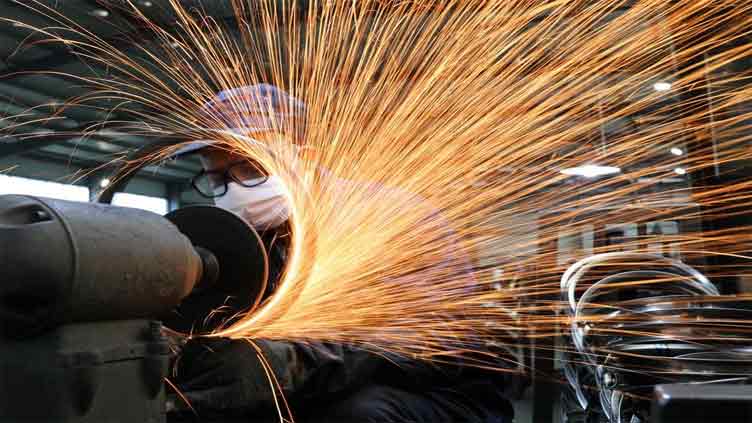China's manufacturing activity shrinks for fifth month

Business
World's second-largest economy risks missing Beijing's annual growth target of around 5pc
BEIJING (Reuters) – China's manufacturing activity contracted for a fifth straight month in August, an official survey showed on Thursday, maintaining pressure on officials to provide support to shore up economic growth amid soft demand both at home and abroad.
The official purchasing managers' index (PMI) rose to 49.7 from 49.3 in July, according to the National Bureau of Statistics, staying below the 50-point level demarcating contraction from expansion. The reading was above a forecast of 49.4.
The world's second-largest economy risks missing Beijing's annual growth target of around 5 per cent as officials wrestle with a worsening property slump, weak consumer spending and tumbling credit growth, leading major banks to downgrade their growth forecasts for the year.
"It's too early to tell, but today's print suggests that a sequential uptick in growth activity in the third quarter could still be possible," said Louise Loo, senior economist with Oxford Economics.
"Particularly if incoming stimulus starts feeding through to the economy."
Beijing on Sunday announced halving the stamp duty on stock trades, the first cut to the tax since 2008, to boost investor sentiment.
Detailed rules were also unveiled on Friday to ease first-home mortgages. And some Chinese state-owned banks will soon lower interest rates on existing mortgages.
The fresh moves came after a raft of measures aimed at reviving big-ticket purchases, notably of new-energy vehicles. Still, many analysts see only a slim chance for any drastic stimulus amid concerns over mounting debt risks.
The non-manufacturing PMI, which incorporates sub-indexes for service sector activity and construction, fell to 51.0 from July's 51.5, led by a continuing fall in services activity.
"With mounting evidence that non-manufacturing activity is slowing, a more decisive upturn in manufacturing will be needed to keep overall growth from slowing," said Frederic Neumann, chief Asia economist and co-head of Global Research Asia at HSBC.
The composite PMI, including both manufacturing and non-manufacturing activity, rose to 51.3 from 51.1.

